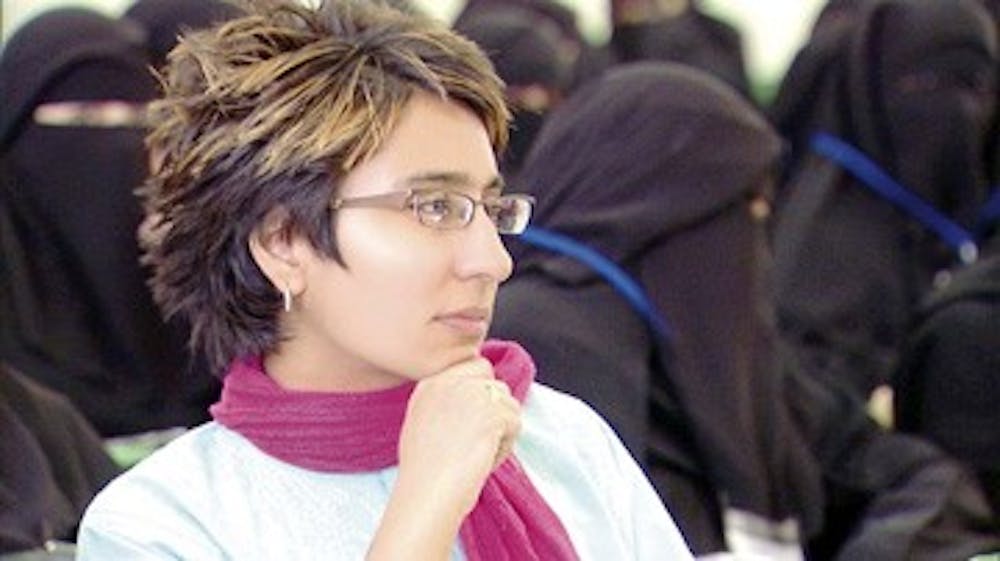
When Irshad Manji gets up in the morning, she checks her e-mail for death threats and forwards them to the police. It's a regular day for Manji, who has become a target for religious extremists after publishing her international best seller, The Trouble with Islam: A Muslim's Call for Reform in Her Faith.
An Muslim journalist and filmmaker devoted to reconciling Islam with human rights and freedom, Manji directs the Moral Courage Project at New York University. The Daily Pennsylvanian recently had the chance to chat with Manji about her experiences before she speaks at Penn on May 3.
DP: Were there specific incidents in your childhood that crystallized your notion that something had to change?
Irshad Manji: When I was a child I didn't question the Quran itself; I was questioning more basic notions like, why can't women lead prayer? My moment of moral reckoning came when I asked myself: what if I'm not being educated, what if I'm being indoctrinated? Education allows us to think critically. Indoctrination squelches that ability.
I studied Islam on my own - I am so glad I did, because it was during this period that I learned about Islam on my own terms without having the teachings injected with prejudices. Far from corrupting my faith, freedom of information has saved my faith. This is why I am on a mission to show younger Muslims that we can be thoughtful and faithful.
DP: What has the reception of your book and your ideas been like? Have Muslim moderates come forward?
IM: Immediately after my book came out in English, my e-mail inbox overflowed with messages from young Muslims who asked to translate it so they could share with friends. So they said you do it, we'll download it free of charge as a pdf and read it in privacy and safety.
I heard from a New York Times magazine reporter: "I've spent the last six months in Jordan, Lebanon and Syria doing a story on honor crimes. As I've been asking people where they get the bravery and courage to speak out, more are referring to your book."
DP: How can college students avoid being branded as "Islamophobes" while still questioning extremist practices?
IM: You want to be sure that in questioning this concept of cultural relativism you're coming from progressive politics. If you only come from counterterrorism, then you are reducing all Muslims to the status of perceived terrorists. If you love universal human rights, you're not reducing anyone - you're elevating all Muslims to shared human values.
The next point to make is you have to be armed with a basic set of questions. When you are told as a non-Muslim student that you are not allowed to partake in any discussion of Muslim reform because you aren't part of their community, you say, why are you racially profiling me? Just because I have white skin and am non-Muslim, I'm not allowed to partake in public discourses? The logical implication of that argument is that we civilians cannot protest military abuses because we aren't part of the military culture. You can see how absurd that argument is.
DP: The American media and politicos have hyped up democratization in the Middle East. Do you think Islam and democracy are compatible?
IM: It's important to realize the American media's mistakes when covering the Muslim world. They turn only to the Middle East for indicators of progress. The vast majority of Muslims are non-Arabs and that includes Indonesia. Indonesia is the largest Muslim country in the world. The media continually turns to the tribal Middle East - let's look at the non-Arab world.
The Daily Pennsylvanian is an independent, student-run newspaper. Please consider making a donation to support the coverage that shapes the University. Your generosity ensures a future of strong journalism at Penn.
DonatePlease note All comments are eligible for publication in The Daily Pennsylvanian.




